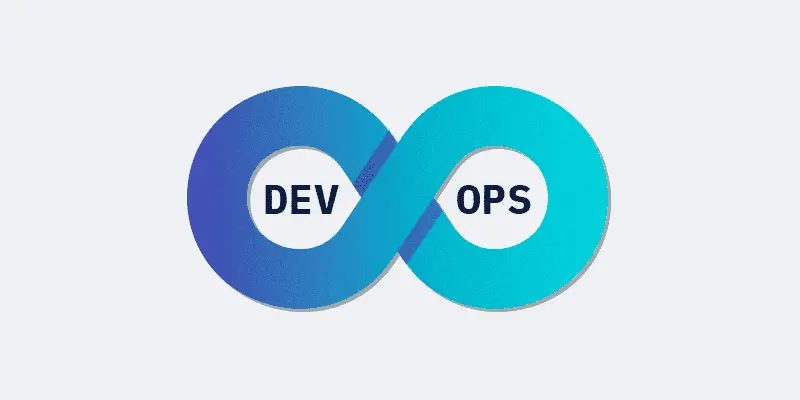There is an almost infinite number of ways to address your Salesforce development goals. The size of your team, the tools used, and the processes followed by team members can be mixed and matched any way you see fit.
So how do you focus your attention and find the most streamlined ways to approach Salesforce development that are economical and repeatable?
Various trains of thought and methods have been devised to assist development teams. One of the most popular ways of doing this is what’s known as DevOps. This is the marriage of development and operations efforts into a singular endeavor.
DevOps combines practices and tools to improve products at a higher velocity, increase confidence in code deployed to production, and heighten customer satisfaction.
But what specific benefits will your development team—and company as a whole—enjoy from utilizing the DevOps approach?

Here are 8 benefits you can expect to see from DevOps implementation for Salesforce:
1. Faster Releases
The ability to identify a need, plan out and develop a product, and then quickly release it to market positions your business as a leader in your industry. The needs of your customers are always evolving. Recent and reliable updates are the best way to address these evolving needs.
The tools and processes utilized in DevOps reduce the amount of time you spend seeking and rectifying errors, making it easier to quickly produce quality products.
Automated processes are an essential aspect of a streamlined system. DevOps implementation for Salesforce involves the usage of these powerful tools that speed along the development process as a whole.
2. Increased Data Security
Manual processes are prone to data security vulnerabilities. This can come from simple errors, missed bugs, or accidental exposures. Many development pipelines will wait until the final testing phase to address data security issues. This leaves you open to potential losses and exposures.
Integrating security considerations into every step of your DevOps pipeline will give you the best chance at avoiding data breaches, losses, or other types of corruption.
Incorporating DevOps tools like static code analysis, CI/CD, and reliable backups protects your Salesforce environment and helps you stay in compliance with data security regulations.

3. Repeatable Processes
There is no one-size-fits-all approach to a Salesforce development pipeline. Your particular needs will necessitate individualized tactics. DevOps implementation for Salesforce involves an assessment of your current toolset and what you hope to accomplish.
Constant attention to the success of your DevOps efforts allows you to refine areas that need improvement and solidify tactics that have proven to be successful.
Repeated processes shorten the planning stage and increase confidence in every step toward deployment. Automated DevOps tools lend themselves perfectly to providing reliable results.
4. Higher Quality Products
There is no greater metric on the success of your development efforts than the satisfaction of your end users with the final product. Does it function properly? Is it beneficial to your customers? Anything less than a resounding yes to these questions mean there is room for improvement.
Constant attention to quality assurance measures and reliable automated processes contribute to much higher quality in your final products.
Automating quality checks throughout your Salesforce development pipeline ensure that no bugs, glitches, or vulnerabilities make it through to the deployment phase.
5. Streamlined Efforts Through Automation
Your team members have a lot of tasks to attend to. Any way you can help them focus on more pressing matters by taking repetitive tasks off their hands will expedite the process. DevOps implementation for Salesforce puts a variety of automated tools at your disposal.
Automating processes reduces simple errors and frees up your team members to give more attention to manually intensive stages like writing code.
Streamlining your Salesforce development efforts is about making the most of your team members’ time while reducing the overall production time wherever necessary. Automation is your best tool to accomplish this.
6. Reduction in Production Costs
A successful and useful product is perhaps the main goal of a development pipeline. However, you’re still a business and need to minimize the associated costs of every effort. The ability to reduce the costs associated with developing new projects will produced compounded benefits over time, as the savings repeat and grow more substantial.
DevOps implementation for Salesforce is associated with a reduction in errors found later in the pipeline. And the earlier these errors are found, the more inexpensive they are to fix.

Errors in a development project will snowball with time, making them more costly and more time-consuming to fix. The quality safeguards at different stages throughout the DevOps pipeline will catch these errors sooner, saving your team time and your company money.
7. Higher Success Rates
We’ve discussed the various benefits that can be provided by a reduction in errors—decreased overall cost, improved customer satisfaction, and higher rates of successful deployments. However, the importance of reducing errors simply can not be overstated.
Reducing errors improves overall success, increases release velocity, and supports repeatable and successful development processes.
There are many tools that work to reduce these errors, but none better than static code analysis. This is your first automated line of defense against potentially catastrophic errors. The ability to catch and fix errors in the code as they are written sets up the rest your Salesforce DevOps pipeline for success.
8. Allows You to Focus on Innovation Instead of Upkeep
DevOps implementation for Salesforce helps your team members to quickly produce quality products in a repeatable and reliable manner. This saves your team the time it takes to fix errors and release additional updates to support proper functionality.
The ability to keep the attention of your team looking forward instead of rehashing old products provides the opportunity to create the next big thing for your company.
Pushing your DevOps efforts into the future creates an atmosphere conducive to innovation. Setting your Salesforce development pipeline up for success also puts your company in a better position to establish itself as a leader in your industry.
